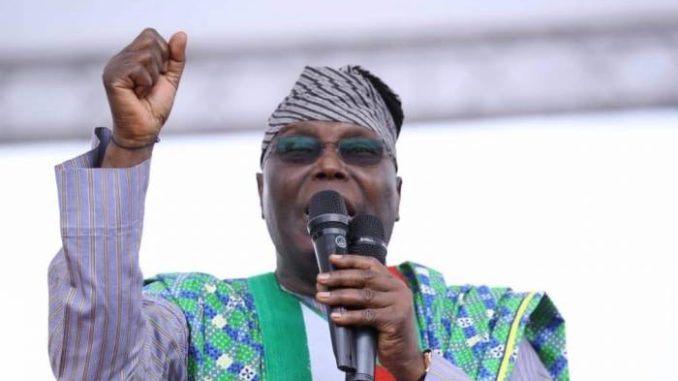
The residential candidate of the Peoples Democratic Party, Atiku Abubakar, has said he would be willing to risk plunging Nigeria’s economy into inflation in order to guarantee inflow of foreign investments.
Mr Abubakar, a former vice president, said he would float the naira, so as to allow free market determine the value of the national currency, a controversial position that stands in sharp contrast to the belief of President Muhammadu Buhari.
“I would prefer to float the naira because I believe that will bring about a more stable exchange rate,” Mr Abubakar told The Africa Report in recent interview. “Therefore, foreign investors are more likely to return to Nigeria and invest as much as possible.”
“We have to create more incentives for foreign investment and relax conditionalities, remove regulations as much as possible. But what you forget, it has two side effects,” he said.
When challenged that the policy could worsen Nigeria’s inflation rate, which stood at 11.3 percent in September after averaging 16.5 percent in 2017, Mr Abubakar said the foreign currency that potential investors would pump into Nigeria would be enough to cushion the imminent crisis of inflation on Nigerians.
“There could be devaluation and there could be a lot of inflow of foreign currency into the country. The devaluation that is likely to result can be balanced with the relatively huge [sums of] foreign currency that will be coming into the country. We had that situation prior to the departure of [former president] Goodluck Jonathan.
“At that time, we had a pile of foreign investment in the country, and there was stability of the naira. So people did not have to go to the central bank to look for foreign exchange because there was foreign exchange in the market and in the banks. So it could turn out to be a win-win situation,” he said.
The policy the candidate is proposing could send commodity prices through the roof in an import-dependent economy like Nigeria.
But it conforms with his longstanding position that Nigeria’s economy should be guided by free market principles.
Currently, the country’s manufacturing sector has been widely deemed moribund by industrialists and economists. Mr Abubakar’s proposal, which he said was successful when tried before, did not seem to fathom what would become of Nigeria’s economy in the transition period between foreign investments and and growth.
“There is no amount of foreign foreign investment that would drive down inflation,” Enobong Udoh, an economist, told PREMIUM TIMES Thursday morning.
Mr Udoh said the problem with Nigeria’s inflation has more to do with the monetary policies of the Central Bank of Nigeria, some of which a president might not be able to control to avoid being seen as compromising the independence of the institution.
“People emphasise too much on fiscal policy and not the monetary policy, which is actually the problem,” Mr Udoh said. “If you are having interest rate of over 25 percent, it is not good, and you cannot use foreign investments to drive down its immediate impact.”
Mr Udoh said Nigeria’s real inflation rate is over 25 percent, casting strong doubts over the 12 percent which the statistics office is reporting.
“Inflation is about 25 percent right now,” Mr Udoh said. “Banks are giving out loans at about 25 percent and they try to make two or three percent interest on each loan.”
He suggested a reshuffling of top management officials at CBN as way to drive down lending rates.
“The guys at the CBN are in charge of monetary policy, but they do not know what they are doing,” he said. “they are not doing well at all and they should be removed urgently before we could have a sensible economy.”
Mr Buhari strongly rejected calls to float the naira between 2015 and 2016, although he eventually yielded to calls to devalue when it became clear that the CBN could no longer defend the national currency.
Mr Abubakar’s comments to The Africa Report, which come four days to the formal opening of presidential campaign, have also elicited critical reviews by commentators in the ruling All Progressives Congress.
Mr Abubakar “is clearly proposing a suicidal economic plan for Nigeria,” Ayo Akanji, an APC strategist, told PREMIUM TIMES. “Nigerians can now begin to see that they risk voting in a man who lacks basic understanding of macroeconomics.”
“This is a voodoo and crooked economic policy that he might have used in his private businesses and assumed would work for Nigeria,” Mr Akanji said.
“Nigerians should now compare this dangerous proposal with how the Buhari administration has been implementing a holistic home-grown solution to our economic problems, which has been working for us as evident in gradual and sustainable uptick in the country’s economic activities,” the strategist said.
By Samuel Ogundipe
